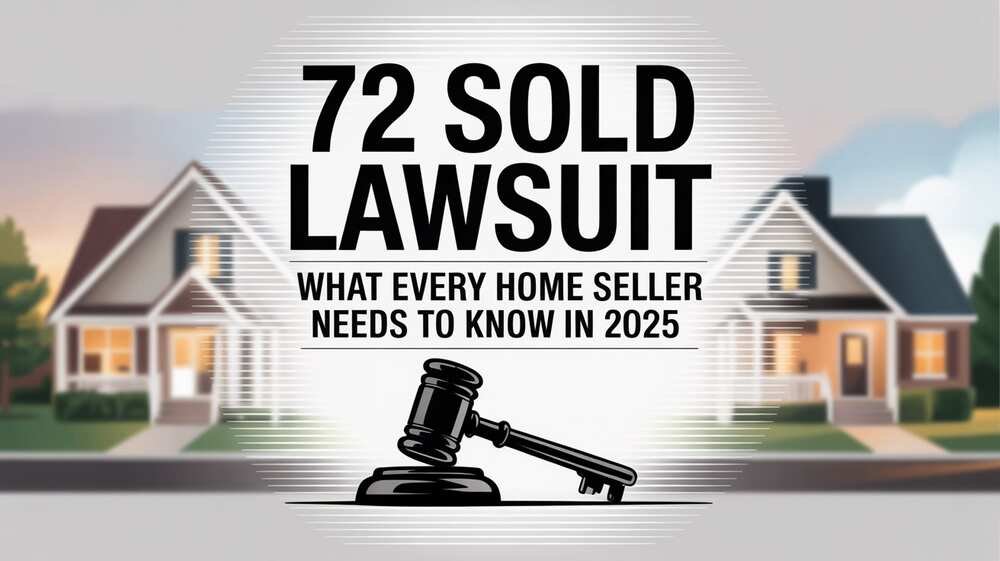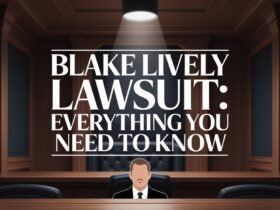Introduction: The 72 Sold Controversy Unfolded
The real estate market is no stranger to disruptive models, and 72 Sold quickly became one of the most talked-about companies in recent years. Founded on the promise of selling homes in just 72 hours, the company marketed itself as a game-changing solution for homeowners seeking speed and convenience. However, beneath the glossy ads and bold guarantees, a wave of controversy has emerged. The 72 Sold lawsuit is now gaining national attention, bringing forward serious legal claims and raising questions about the company’s practices. For homeowners and agents alike, understanding the implications of this lawsuit is essential.
What Is 72 Sold?
72 Sold is a real estate service platform that claims to sell homes faster than traditional methods—often within just 72 hours. The program was launched to streamline the home-selling process by creating a sense of urgency among buyers and leveraging strategic marketing. Partnering with major brokerages like Keller Williams, the brand rapidly expanded its reach across multiple states. Unlike traditional real estate services, 72 Sold emphasizes a time-sensitive approach, creating the impression that sellers can skip long waits, open houses, and negotiations. The platform connects homeowners to local agents who represent 72 Sold and follow a unique sales script. However, this model has now come under legal scrutiny due to mounting consumer complaints and legal allegations.
Understanding the 72 Sold Lawsuit
The 72 Sold lawsuit began to surface in 2023 and has continued to grow in scope throughout 2024 and 2025. Multiple plaintiffs, including former clients and real estate professionals, have raised legal claims against the company. The core allegations center around deceptive advertising, misleading sales guarantees, and failure to disclose critical information. Plaintiffs argue that the company’s “72-hour” promise is often unrealistic and that the actual time to sell far exceeds what is promoted. Some lawsuits are moving toward class-action status, signaling broader legal ramifications. At the heart of the matter is whether 72 Sold misrepresented its services and whether consumers were harmed financially or contractually as a result of these practices.
Key Allegations Made Against 72 Sold
Several key accusations have been highlighted in the 72 Sold lawsuit. First and foremost, plaintiffs claim that the 72-hour sale guarantee is misleading. In many cases, homes took weeks or even months to sell, with some listings receiving no immediate offers at all. Critics argue that the marketing language was crafted to attract attention rather than reflect actual performance. Additionally, hidden fees and marketing costs have become a central concern. Homeowners allege that they were not informed about additional expenses until late in the process. Others say they were pressured to accept lowball offers to meet the artificial 72-hour deadline. Lastly, some agents associated with 72 Sold have been accused of misrepresenting their role, creating a sense of urgency without providing complete transparency.
Evidence, Complaints & Supporting Claims
The lawsuit is supported by an increasing volume of consumer complaints, including those submitted to the Better Business Bureau and various online review platforms. These complaints consistently cite a gap between expectations and actual results. Numerous customers have shared experiences of delayed sales, unreturned deposits, and undisclosed fees. In some cases, internal communications have been submitted as evidence, suggesting that certain practices may have been systematically encouraged. While not all claims have been verified in court, the volume and consistency of the reports have led legal experts to take notice. Publicly available court documents provide insight into the plaintiffs’ legal strategies and the kind of documentation being presented in support of their claims.
72 Sold’s Official Response
In response to the growing criticism and legal scrutiny, 72 Sold has issued multiple public statements defending its business model. The company maintains that its services are provided on an entirely voluntary basis and that disclaimers are included in all contractual agreements. According to 72 Sold, agents are trained to explain the process clearly, and any sale timeline is contingent on market conditions. Company spokespeople argue that a few dissatisfied clients should not undermine the value provided to thousands of successful sellers. In some cases, the company has suggested that negative campaigns may be driven by competitors or individuals with misinformed opinions. Nonetheless, the legal battle continues, and 72 Sold is now actively defending itself against several court claims.
Current Legal Status & Court Proceedings (As of 2025)
As of mid-2025, several lawsuits involving 72 Sold are still active in various state jurisdictions. Some have been consolidated under potential class-action status, while others are proceeding individually. Court hearings, motions, and mediation efforts are ongoing. Plaintiffs are seeking financial restitution, contract cancellation, and, in some cases, punitive damages. Legal analysts suggest that the outcomes of these cases could set new precedents for how real estate platforms advertise their services. Key hearings are scheduled for later this year, and any potential settlements or verdicts could have wide-reaching implications.
Impact on Homeowners, Agents & the Real Estate Industry
The 72 Sold lawsuit has shed light on the broader trend of fast-sale real estate. For homeowners, the case serves as a reminder to carefully vet marketing claims and fully understand all contractual obligations before committing to a sales platform. Many consumers are now more cautious about offers that seem “too good to be true.” Real estate agents affiliated with 72 Sold have also faced reputational challenges, with some distancing themselves from the brand amid the legal noise. For the industry at large, this situation may lead to tighter regulations surrounding real estate advertising and the use of performance guarantees. Brokerages and agents nationwide are watching closely to see how courts interpret these legal standards.
Lessons for Consumers: Red Flags to Watch For
Whether you’re considering 72 Sold or a similar fast-sale platform, it’s crucial to ask the right questions. Consumers should insist on complete transparency regarding marketing fees, agent commissions, and realistic timelines. Reviewing contracts thoroughly, ideally with the help of a real estate attorney, can help avoid unexpected costs or commitments. If a service promises a rapid sale, inquire about contingencies if the timeline isn’t met. Understanding your rights and responsibilities as a seller can make a significant difference. The 72 Sold lawsuit underscores the importance of informed decision-making in what is often the largest financial transaction of a person’s life.
Similar Lawsuits or Industry Trends
72 Sold is not the only real estate company facing legal scrutiny. In recent years, companies like Opendoor and Zillow Offers have also been subject to lawsuits and regulatory action for allegedly misleading consumers. The rise of real estate technology (proptech) has introduced new methods for buying and selling homes, as well as new risks. Regulators are beginning to implement stricter advertising rules for companies making bold claims. The 72 Sold lawsuit may accelerate this trend, prompting the Federal Trade Commission and state agencies to monitor real estate platforms more closely. The entire industry is now undergoing a state of evolution, striking a balance between innovation and accountability.
Frequently Asked Questions (FAQ)
Is 72 sold legally in my state?
Yes, 72 Sold operates legally, but lawsuits suggest that its practices may violate consumer protection laws in certain states.
Is the 72-hour guarantee enforceable?
Not typically. Most agreements include disclaimers that make the “guarantee” more of a marketing slogan than a legal promise.
Are there safer alternatives to 72 Sold?
Yes. Traditional agents, FSBO platforms, and reputable iBuyer programs offer various options depending on your needs.
How can I join the 72 Sold lawsuit?
Contact a consumer protection attorney in your state for guidance and assistance. Some class-action firms are currently gathering plaintiffs.
Does the lawsuit affect past sellers?
Possibly. If damages are awarded or settlements are reached, past clients may be eligible depending on their contract terms and experience.
Conclusion: What the 72 Sold Lawsuit Teaches Us
The 72 Sold lawsuit is more than a legal battle; it’s a cautionary tale for the modern home seller. While innovation in real estate is valuable, transparency and accountability remain non-negotiable. As homeowners become more educated and regulators become more vigilant, companies must rise to the challenge of ethical marketing and fair practices. For anyone considering a fast-sale service in 2025, the key takeaway is straightforward: do your homework, read the fine print, and don’t hesitate to ask tough questions. The outcome of this lawsuit may help reshape the standards of trust and performance in the housing market moving forward.
Also read more interesting topics at mgtimes.co.uk.






Leave a Reply